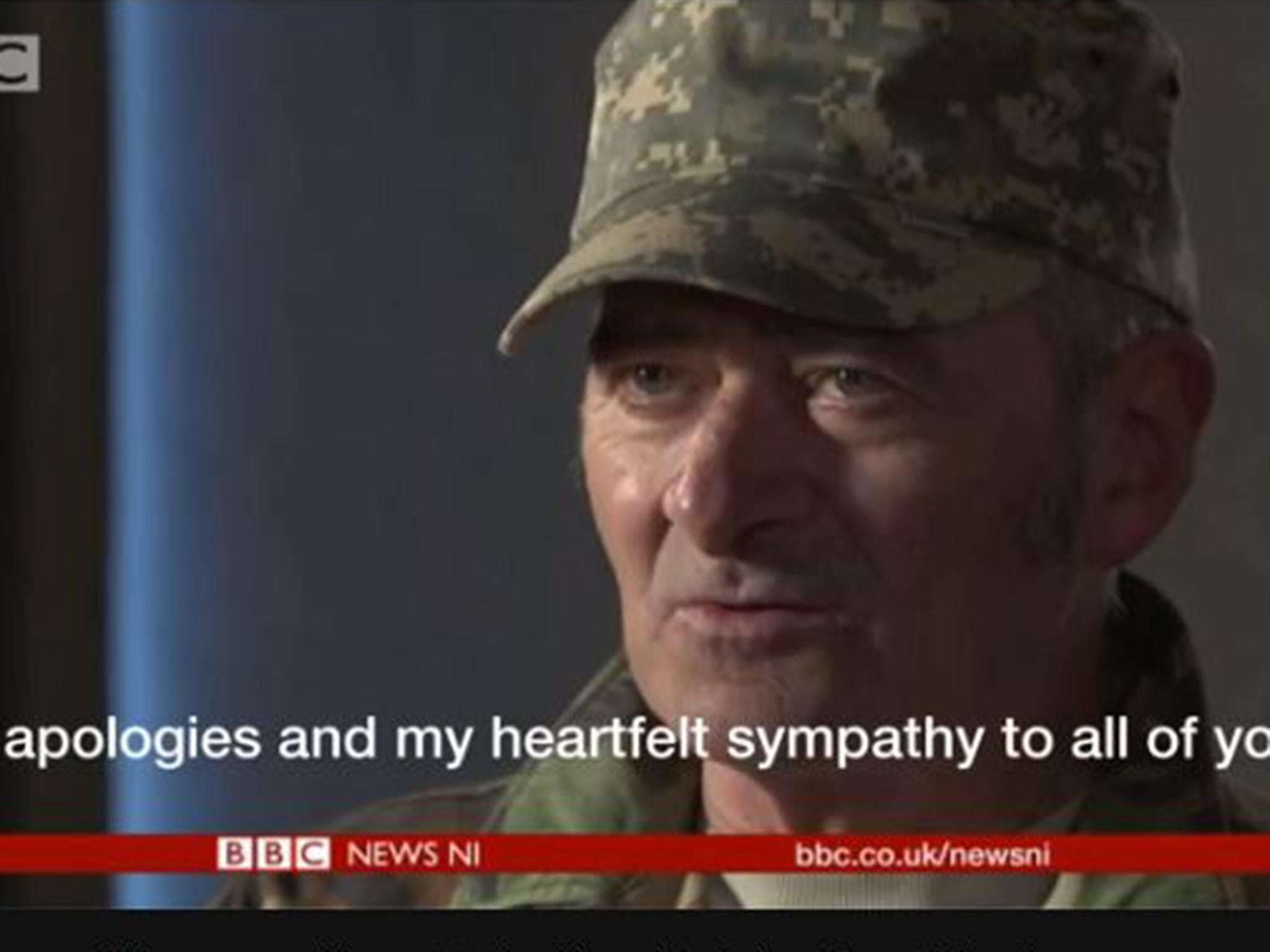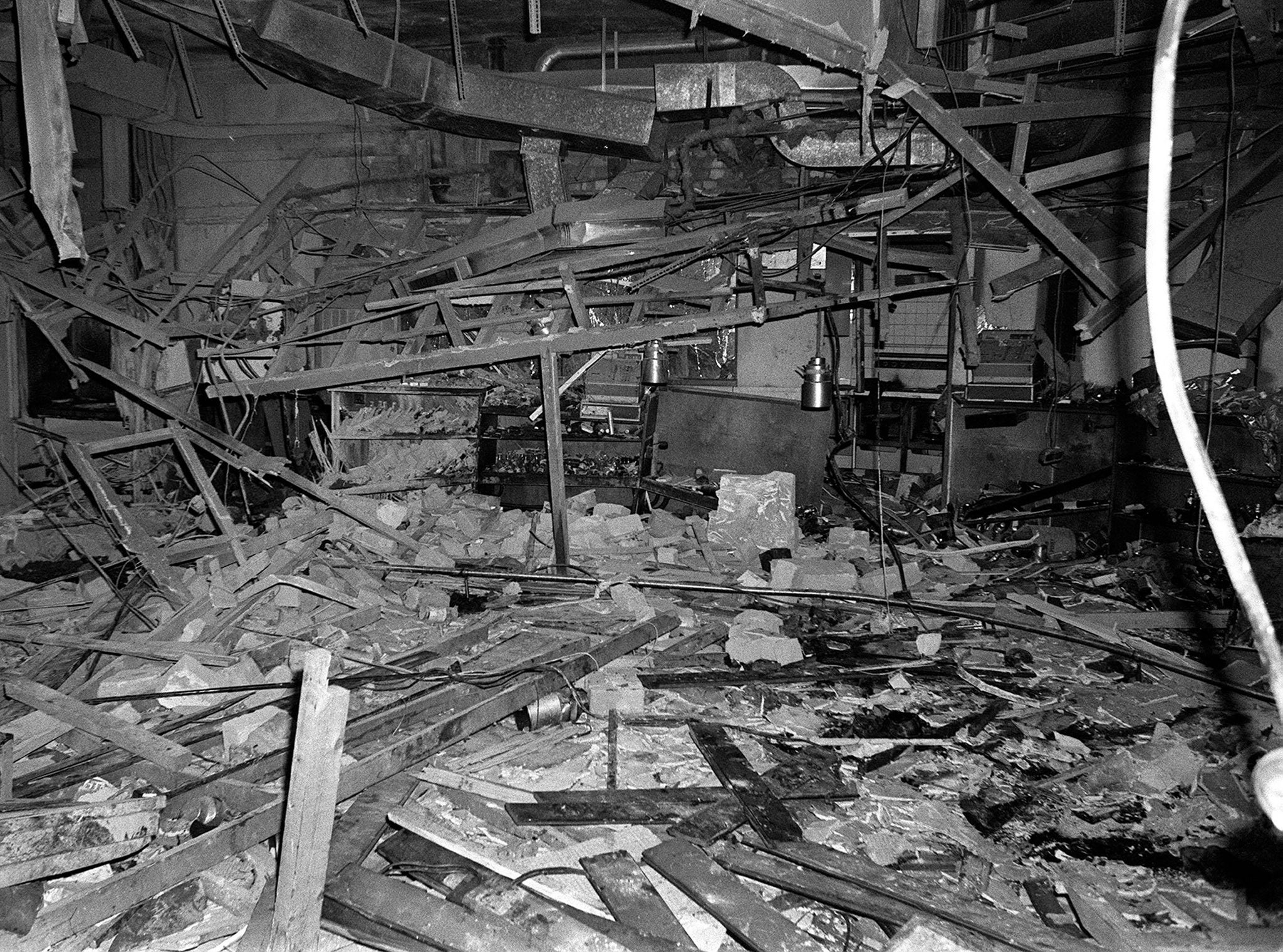Birmingham pub bombings: Self-confessed IRA bomb maker apologises for blasts which killed 21 people
'My apologies and my heartfelt sympathies to all of you, for the terrible, tragic loss that you've been put through. I hope at last God will be merciful and bring you closure.'

Your support helps us to tell the story
From reproductive rights to climate change to Big Tech, The Independent is on the ground when the story is developing. Whether it's investigating the financials of Elon Musk's pro-Trump PAC or producing our latest documentary, 'The A Word', which shines a light on the American women fighting for reproductive rights, we know how important it is to parse out the facts from the messaging.
At such a critical moment in US history, we need reporters on the ground. Your donation allows us to keep sending journalists to speak to both sides of the story.
The Independent is trusted by Americans across the entire political spectrum. And unlike many other quality news outlets, we choose not to lock Americans out of our reporting and analysis with paywalls. We believe quality journalism should be available to everyone, paid for by those who can afford it.
Your support makes all the difference.An IRA member who was part of the group behind the Birmingham pub bombings has apologised.
Michael Christopher Hayes – a self-confessed bomb maker – said he was sorry for the killing of innocent people in the 1974 blasts.
Speaking to the BBC, Mr Hayes said he hoped his apology on behalf of all active republicans will help grieving relatives find "closure".
He said: "My apologies and my heartfelt sympathies to all of you, for the terrible, tragic loss that you've been put through. And all these years you've been trying to find closure. I hope at last God will be merciful and bring you closure.
"And I apologise not only for myself ... I apologise for all active republicans who had no intention of hurting anybody and sympathise with you."
An eight-minute delay before police were warned of the bombs' location led to the death of 21 people and the injury of 182 others, when they exploded in a pair of city centre pubs. Mr Hayes said the bombs had not been intended to kill people.
On the evening of the 21 November 1974, a man with an Irish accent called the Birmingham Post and Evening Mail newspapers to say two bombs were planted in the town centre.
He finished the call by giving the official code used by the Provisional IRA to authenticate a warning call and allow civilians to be evacuated.
Former IRA officials have since said there was an unintentional delay in issuing the warning.
Mr Hayes said the IRA unit in Birmingham had been shocked by the death toll.
"That wasn't meant. It wouldn't have been done if that was the case," he said.

The Birmingham pub bombings caused the worst single losses of life in the Troubles. Six men were wrongfully convicted for the blasts but no-one has ever been brought to justice.
Mr Hayes, 69, who now lives in south Dublin, said he personally defused a third bomb on Birmingham's Hagley Road after he became aware of the death toll in the first two blasts.
He refused to say who planted the bombs in the Mulberry Bush and the Tavern in the Town but he said he wanted to speak out to give "the point of view of a participant".
But relatives of those who were killed said the apology was "gutless and spineless".
Mr Hayes' apology came as an inquest into the bombings was reopened by a coroner stating "a wealth of evidence" had not yet been heard.
West Midland Police said their investigation remained open but that no further comments on the suspects' identities will be provided until the proceedings have concluded.
Victims' families have repeatedly asked for the names of the suspects to be disclosed.
Mr Hayes was arrested and questioned by West Midlands Police about the bombings in 1974 but he was released.
He said he had been a member of the IRA for more than 30 years in both Ireland and England and had participated in the group's activities in Birmingham as "an active volunteer".
He added he would not be attending the inquest into the bombings and that he could "sleep at night" because he "is not a murderer".
In 1975 six men were found guilty of carrying out the bombings. They spent 16 years in prison before their convictions were finally overturned by the Court of Appeal in May 1991.
They were released on the basis of police fabrication of evidence, unreliability of scientific evidence and the suppression of evidence.
Until the 7/7 London bombings in 2005, the Birmingham bombings was the worst ever terrorist attack on the British mainland.
Join our commenting forum
Join thought-provoking conversations, follow other Independent readers and see their replies
Comments